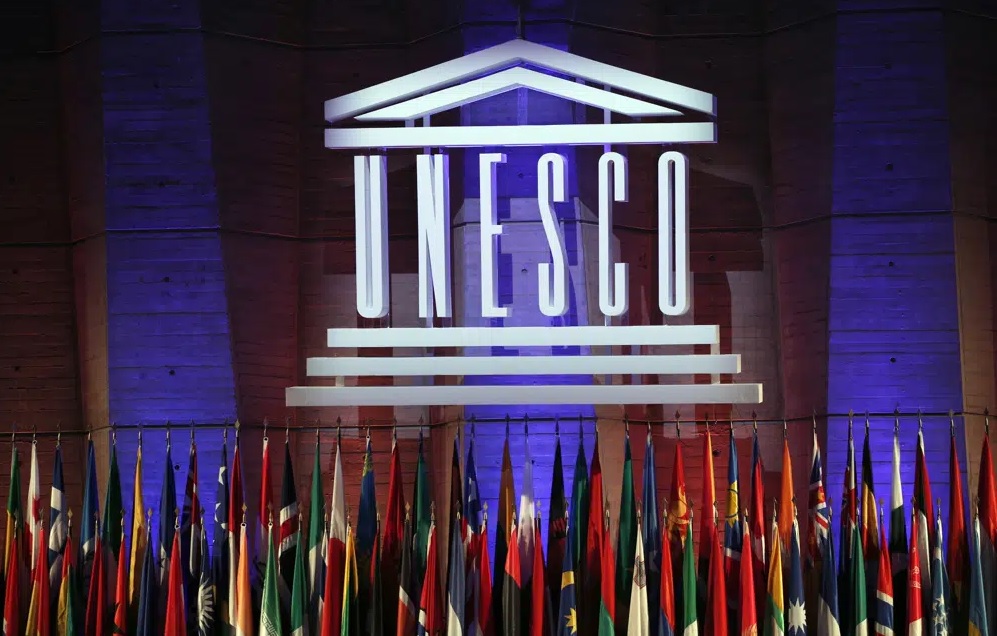Director-General Audrey Azoulay told UNESCO representatives in Paris that the United States intended to renew its membership, describing the move as a “strong act of faith in UNESCO and multilateralism.” The US’s planned membership will have to be voted on by the organization’s 193 members.

Logo of the United Nations Educational , Scientific and Cultural Organization (UNESCO). Photo: UNESCO
Why did the US leave UNESCO?
A founding member of UNESCO, the US began its disagreement with the agency in 2011, when it admitted Palestine as a member state, angering both the US and Israel.
Palestine is not recognized as a state by many Western countries, including the United States, Britain, Germany and others, which support a two-state solution. These countries argue that statehood for the Palestinian territories must come from direct negotiations between the two parties: Palestine and Israel.
The move first led to the end of US contributions to the agency, which had until then contributed about 22% of UNESCO's budget. In 2017, former US President Donald Trump announced the US would withdraw from the agency altogether, along with Israel.
Why did the US return to UNESCO?
In March, US Secretary of State Antony Blinken said: "I strongly believe that we should go back to UNESCO — again, not as a gift to UNESCO, but because the things that are happening at UNESCO are really important," Blinken told a Senate committee when presenting the budget.
“They are working on rules, norms and standards for artificial intelligence. We want to be there,” he added.
On Monday, China's UNESCO Ambassador Jin Yang said his country appreciated UNESCO's efforts to restore US membership, acknowledging the "negative impact" of the US absence on the agency's work.
“Being a member of an international organization is a serious matter and we hope that the return of the US this time means that they acknowledge the mission and goals of the organization,” the Ambassador said.
This is not the first time the US has left the UN cultural agency. In 1984, Washington withdrew under President Ronald Reagan, citing poor management, corruption...
The organization was rejoined much later in 2003, under the George W. Bush administration to "emphasize the message of international cooperation" as the US launched the war in Iraq.
Bui Huy (according to AFP, AP)
Source

































































































Comment (0)